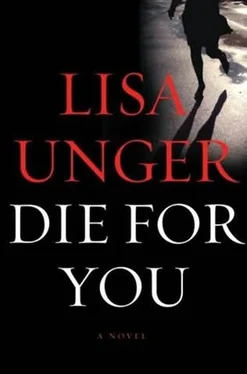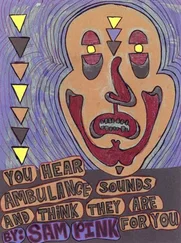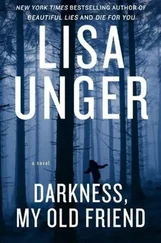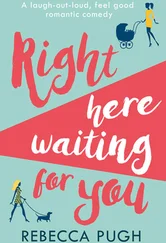“She was tall. Nearly as tall as you, with blond hair and green eyes,” I said more softly. “She knew Marcus,” I continued when he didn’t say anything.
He nodded slowly, a deep frown furrowing his brow, his expression going dark.
“Do you know who I’m talking about?”
He nodded again, but this time to his two friends. He said something in Czech that I didn’t understand. The two men both looked at me for a second and I wondered if I’d made a terrible mistake. They got what they wanted from me and now they’d have no use for me or Fred. I’d lost my gamble. I closed my eyes.
When I opened them again, the two smaller men had moved toward the door and were exiting. I heard their footfalls on the landing. They were bold, these men. Coming and going in broad daylight, not hiding themselves or their vehicle. Were they careless or apathetic? Aware that the property was removed from the street, not visible to the neighbors? They must have been watching the apartment, followed me up here from the city. I’d been too oblivious, too naive to notice.
A second later, with my heart a turbine engine in my chest, I heard a car hum to life outside. Ivan raised his gun at me, but this time I didn’t look away. I didn’t want to make it easier for him to kill me; I wanted him to see my eyes.
“Who is he?” I asked. “What’s his name?”
Fred shifted and moaned beside me. Ivan offered that same weird smile again, this time accompanied by a low chuckle.
“Tell me,” I said, holding his gaze. “I need to know. If you’re going to kill me, I want to know my husband’s name before I die.”
Something strange passed between us. Two people who might as well be living on different planets, our experiences and ideas, our intellects were so opposite. In that moment, we were unified by rage and betrayal. He lowered his gun.
“His name is Kristof Ragan.” The smile dropped from his face. “He is my brother.”
He raised a finger to his lips then and made a shushing noise. Then he took that same finger and drew it slowly across his neck, whispering something in Czech that I didn’t understand. On the other hand, I don’t suppose I needed an interpreter.
Then he turned and left, more quickly and gracefully than I would have imagined possible of a man his size. I was already dialing 911 when I heard the car move down the drive.
BY THE TIME Linda returned to the loft, she was frazzled and drained. After a long, slow trip uptown to Isabel’s apartment, she learned that she’d missed her sister by minutes, according to the cop in the hallway. She was shocked to look over his shoulder and see Izzy’s apartment trashed, but she wasn’t allowed inside. The detectives working the case had also left, following up a lead. She left feeling frustrated and filled with a sick anxiety. She’d inherited her mother’s proclivity for worry. Fight it as she might, she’d never quite been able to overcome it.
She had a tension headache brewing when she closed the door and saw Erik waiting on the couch. Something about the look on her husband’s face ratcheted the pain up a notch. Dread and guilt duked it out in her chest as she moved closer to him.
“What?” she said by way of greeting, more testily than she’d intended.
“We need to talk, Linda.” She felt a jangle of alarm as she flashed on her assignation in the bathroom at the Java Stop. So tawdry. So foolish. Did she want to ruin her life and marriage? Erik could have easily seen her coming or going. Maybe someone in the building had heard Ben pleading at the intercom, mentioned it to Erik.
“Sure,” she said, laying her bag by the door. She moved over to the couch and curled herself up in a ball there. In spite of the tension, she still found herself glancing about at the perpetual mess that was their home. If it was cluttered, at least it was clean-but only because of the weekly cleaning woman. How long had Trevor’s soccer jersey been hanging off that chaise? Wasn’t it anybody else’s responsibility but hers to pick up after the kids? Weren’t they old enough to pick up their own stuff?
“Don’t worry about the mess, Linda. I’ll take care of it in a minute.”
“I didn’t say anything.”
He released a breath through his nose. He was perched on a stool, a half-full glass of water in his hand. She found she couldn’t look at him directly, couldn’t hold those earnest, loving eyes. She didn’t deserve that gaze. She looked down at her fingernails. Her nails were a mess; she needed a manicure.
“I’ve made a terrible mistake,” he said. He shifted off the stool and came over to her, sat heavily beside her on the couch. “I’ve done something really stupid, possibly unforgivable, Linda.”
Relief mingled with concern and she raised her eyes to his face. She saw him then, maybe for the first time in days. Their busy life was a perpetual swing dance between kids and home, her work and his, meals and pickups and drop-offs from various activities-kung fu for Emma, violin lessons for Trevor. Sometimes they just fell into a heap on the couch after the kids went to bed and watched an hour of television, or read in bed until one fell asleep and the other turned off the light. She thought some days he noticed the dishes in the sink before he noticed what she was wearing or that she’d changed her perfume. Sometimes she thought they’d see each other more if they worked apart, each of them going to an office and returning home at the end of the day.
She regarded his sandy stubble and ocean-blue eyes, the lean lines of his high cheekbones, his aquiline nose. That face had tamed her heart. He had sunshine at his core, a breezy summer day at the beach.
“What are you so mad about?” he’d asked early in their relationship. A swank gallery in SoHo; he was fifteen minutes late. It wasn’t even her show. But she raged at him on the street in the rain. “Because I know you’re not this angry about my being fifteen minutes late.”
She felt as if he’d thrown a bucket of cold water on her. Embarrassed, sobered, she caught sight of her reflection in the gallery’s picture window. She didn’t recognize her own expression, her own posture. A few people were watching; one strikingly thin woman smirked, a small plastic cup of wine in her hand. Why he didn’t walk away right then, she never could figure out.
“You’re too young, too beautiful, too good to let yourself be this way,” he whispered, taking her hands. She knew then that he really saw her, that he might have been the first and only person who ever had, other than her sister. The face she wore for everyone else, the demure and polite smile, the unfailingly kind demeanor, the proper girl who did everything right… he didn’t even notice it. When he looked at her he saw straight to the heart of her.
Within a month, she was seeing a shrink, trying to figure out why indeed she was so angry. And then she had to claw her way out of the quicksand of her own inner life before coming to shore. In a cozy office on the Upper West Side, a motherly psychologist with a comforting wave of gray hair and a soft bosom asked her, over time, questions she almost couldn’t stand to hear.
“Do you really blame your mother for moving on, for doing what she thought she had to save herself and her girls? Do you really hate Fred for loving your mother? Isn’t it just that you’re angry with your father for abandoning you, for being absent emotionally before that? Isn’t it just safer to be angry at living people because there’s no way to resolve the anger you have toward your father? Do you really think he loved your sister more than he did you?”
These were the hard things she had to face and answer. But she never would have thought to confront them at all if not for Erik. And where would she be then? She reached for him, touched his face and let her hand drift down to his shoulder.
Читать дальше












